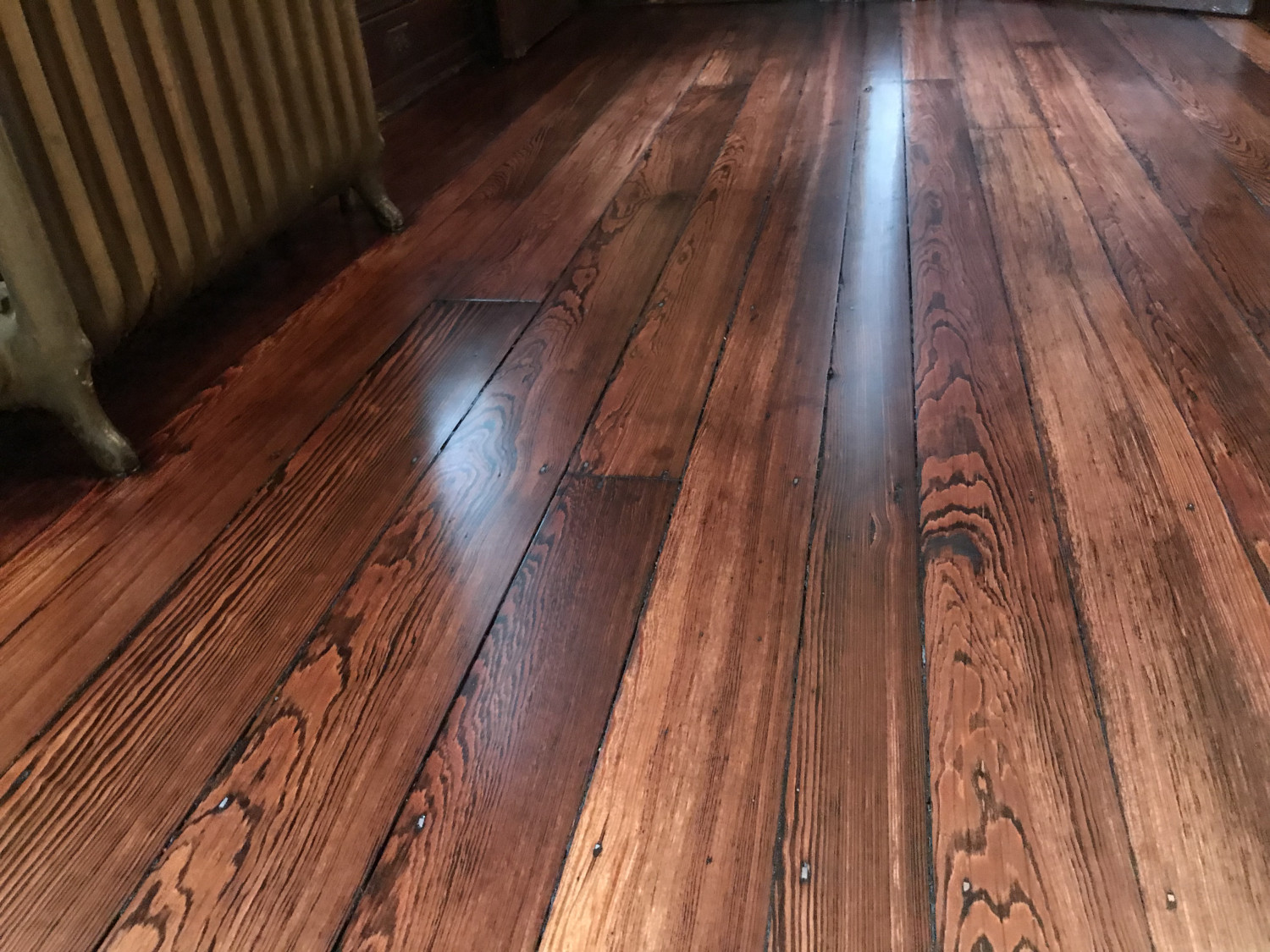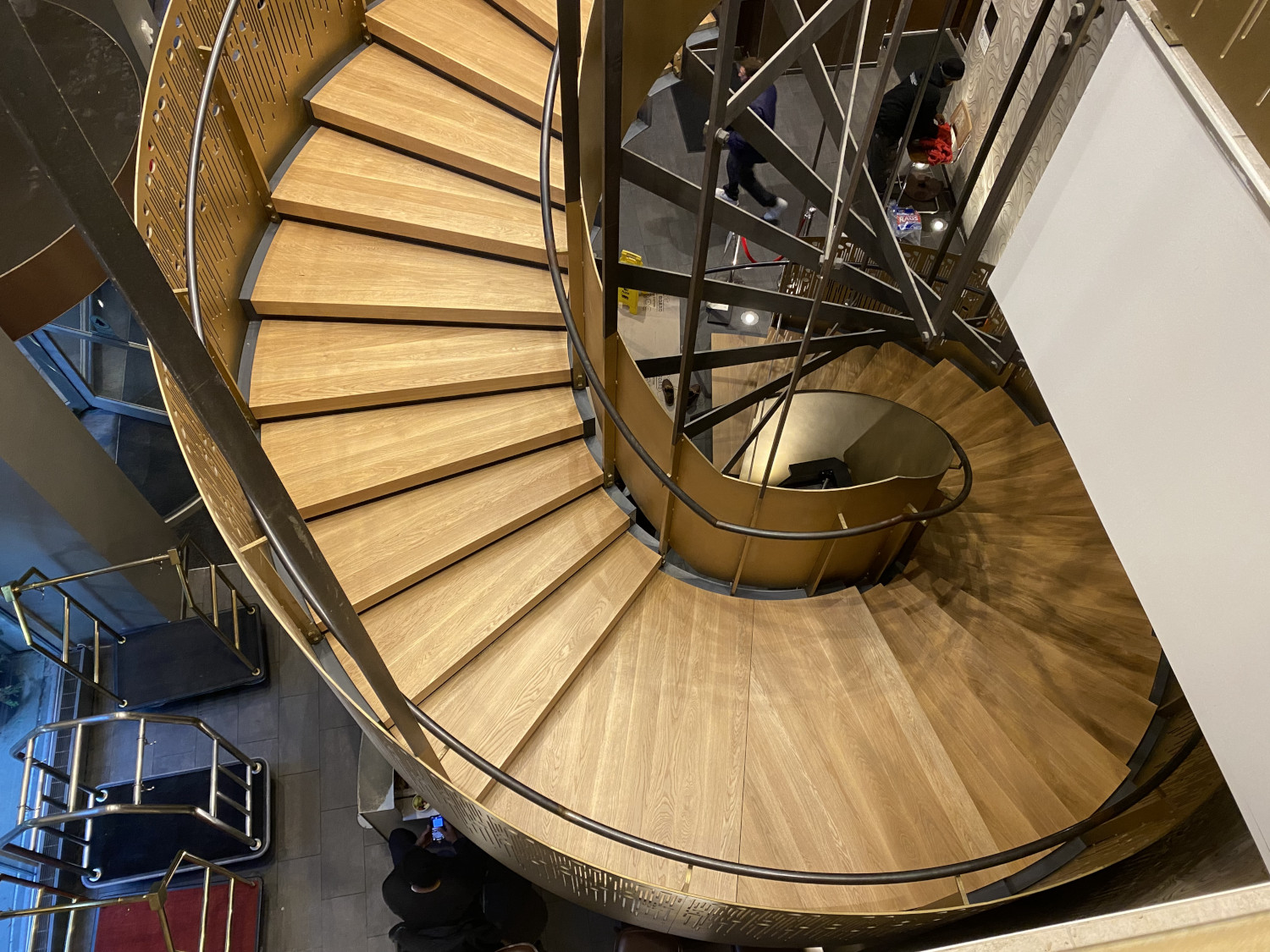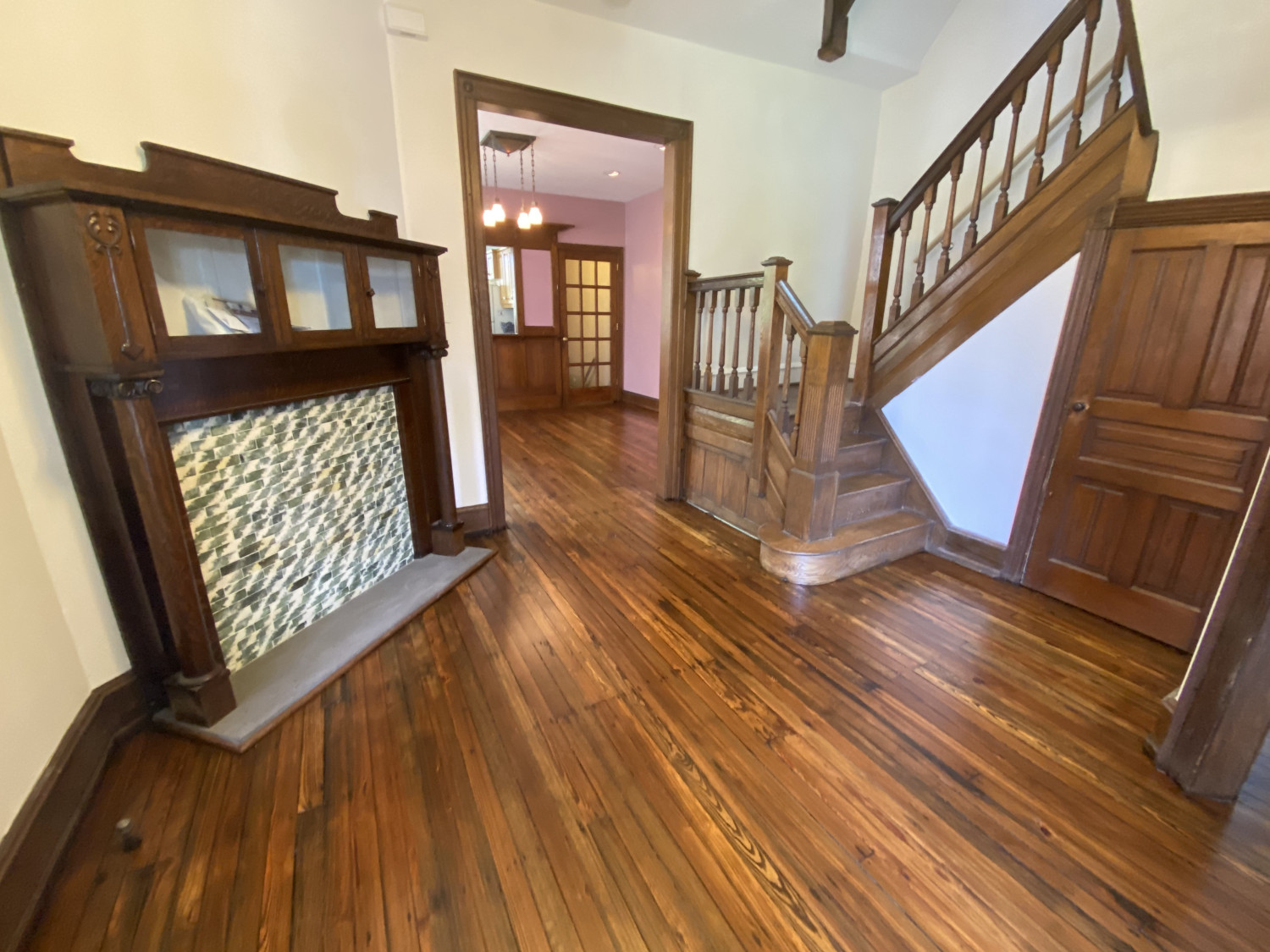Does Polyvinyl Chloride (PVC) Flooring Make People Sick?
When homeowners are seeking a quick and affordable flooring solution, especially in moisture-prone areas such as kitchens, bathrooms, or basements, vinyl flooring (also known as PVC flooring) often tops the list. Its water resistance, low maintenance, and ability to mimic the look of wood or tile make it a tempting option. But beneath that convenience lies a question we can’t ignore: Does PVC flooring make people sick?
At Artisan Wood Floors, we believe in providing honest and thoughtful guidance when it comes to flooring decisions. We’re wood flooring experts (yes, we’re biased!), but part of that role means helping you see all sides of the story, especially when health and the long-term quality of your home are on the line.
What Exactly Is PVC Flooring? And How Is It Made?
PVC (polyvinyl chloride) flooring is essentially the vinyl flooring you see marketed widely today. Chemically, it’s a plastic derived from vinyl chloride monomers that are polymerized. Manufacturers blend stabilizers, plasticizers, fillers, and pigments to achieve the desired flexibility, strength, color, and durability. Over time, the top layers may wear, exposing additives in lower layers.
These additives can include substances like phthalates (plasticizers), lead, cadmium, and even trace amounts of compounds that form dioxins during manufacturing or disposal. Some of those chemicals are not tightly bound to the material and may leach, off-gas, or become part of household dust over the years of use.
How Exposure Happens: Off-Gassing, Dust & Accumulation
One of the main pathways for harmful exposure from PVC flooring is off-gassing of volatile organic compounds (VOCs) and other chemicals that slowly release into the air over time. This process can last for months or even years, especially in tightly insulated homes or rooms with poor ventilation.
Another vector is dust, which accumulates in every home. Tiny particles from the degradation of flooring carry trace toxins. As people walk, children crawl, or pets roam, that dust becomes airborne or is ingested accidentally. Over time, these small exposures build up.
Critically, many modern homes are “air-tight” for energy efficiency, which reduces air exchange and makes it easier for indoor pollutants to concentrate.
What Health Risks Are Linked to PVC Flooring?
While researchers are still working to precisely map every risk, what we know so far is enough to raise caution. Below are some of the documented or suspected health effects associated with chemicals used in PVC flooring:
- Respiratory Irritation & Asthma
Studies suggest phthalates and VOCs from flooring materials may worsen asthma, trigger bronchial irritation, or act as allergens in sensitive individuals. - Endocrine Disruption
Phthalates are known endocrine disruptors. They can interfere with hormonal signaling, potentially affecting growth, puberty, fertility, and even thyroid function. - Neurological & Cognitive Effects
Trace metals, such as lead and cadmium, are especially worrisome. Chronic low-level exposure (especially in children) has been correlated with reduced cognition, attention deficits, behavioral issues, and delays in developmental milestones. - Cancer & Long-Term Disease Risk
Dioxins, which may be byproducts in PVC manufacturing or disposal, are classified as persistent organic pollutants with carcinogenic potential. Over time, bioaccumulation of toxins presents a risk of cancer, liver damage, kidney disease, and adverse immune effects.
Children, pregnant people, and those with chronic illnesses or chemical sensitivities are often most vulnerable.
Is PVC Flooring Ever “Safe”?
The short answer is that “safe enough” depends on the context. In small, low-use areas where ventilation is good and exposures are minimal, some homeowners may view the risk as tolerable. But “low risk” is still a risk, especially when cumulative exposures in your home (from paint, furniture, cleaning products, etc.) are also accounted for.
Additionally, the quality, brand, and manufacturing standards are important. Lower-cost vinyl from unknown sources may use cheaper additives, less strict quality control, or recycled materials with unknown chemical histories.
If you have children, pets, or anyone with asthma or chemical sensitivities, leaning toward low- or no-VOC materials is a prudent choice.
Safer, Smarter Flooring Alternatives
We don’t just critique, we offer solutions. Here are healthier, longer-lasting alternatives to PVC flooring:
- Hardwood (Engineered or Solid)
Natural wood does not off-gas harmful plasticizers. When combined with low-VOC finishes, it remains a beautiful, durable, and safe choice (and yes, we’re biased). - Ceramic / Porcelain Tile
Made from clay and minerals, these are inert and stable. They resist moisture, don’t emit harmful chemicals, and are easy to clean. - Cork & Bamboo (with non-toxic adhesives/finishes)
These renewable materials can be made with low-emission binders and adhesives. They provide a softer feel underfoot and good insulation. - Natural Linoleum
Often confused with vinyl, real linoleum is made from linseed oil, cork dust, wood flour, and mineral pigments. It’s biodegradable and doesn’t rely on plasticizers.
Each option has trade-offs, cost, installation complexity, and suitability for rooms with moisture, but all offer a healthier baseline than PVC.
Your Flooring Decision: Health, Style & Long-Term Value
Choosing flooring isn’t just about price and aesthetics; it’s a decision that affects your home’s indoor environment, your family’s health, and long-term value. Yes, PVC has convenience on its side. However, when you examine the chemical risks, potential for off-gassing, and the long-term exposure burden, healthier alternatives become far more compelling.
At Artisan Wood Floors, we believe in doing flooring right, beautiful, durable, and safe. We’re not just hardwood fanatics (though we take pride in that bias); we’re advocates for flooring that honors your home and well-being. If you’re ready to move off plastic and lean into natural, elegant, health-forward materials, we’re here to help you navigate the choices.
Ask for Steve when you reach out. He’s the owner, the hardwood whisperer, and the person who will personally guide you through your project from vision to finish.
Visit Artisan Wood Floors or request a quote. Let’s design your space with flooring that not only looks good, but feels good, inside and out.
Recent Hardwood Flooring Projects in Philadelphia & NJ




0 Comments